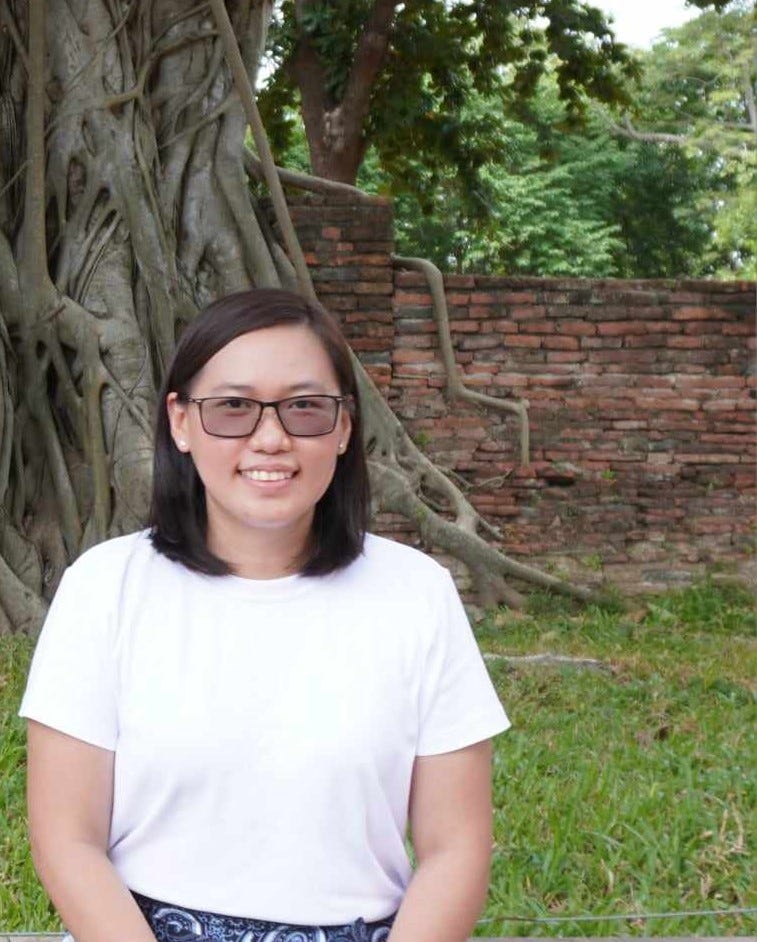Welcome, aspiring medical mind! Today, we embark on a journey into the world of corporate medicine, guided by a seasoned expert who has spent the past eight years navigating its intricate landscape.
In this exclusive interview, we sit down with a Corporate Medical Doctor whose insights are invaluable for medical students like you. This is a conversation you won't want to miss, as we explore the remarkable journey of a medical professional who has truly found their niche.
The Interview
Meet the remarkable Dr. Christine Go, a true pioneer in the realm of corporate medicine! For a staggering eight years and counting, she has been at the forefront of a unique fusion between healthcare and the corporate world.
Dr. Go is not your typical physician; she's a master of healing, not just individuals, but entire organizations. With a stethoscope in one hand and a strategic plan in the other, she's the embodiment of medical expertise meeting business acumen.
Road to White Coat (RTWC): Doc Tin, please walk me through your typical day as a corporate MD.
Dr. Christine Go: This is like a typical office job that starts at 8am and ends at 5pm. I usually start my patient consultation in the morning and review health cases in the afternoon (ito yung mga complicated cases na nakaka-apekto sa work). Sometimes, we also handle vaccinations. My patients are the employees of the company, more or less 2,000 sila.
I can say that my load is lighter compared to hospital duties and I can enjoy my coffee break and lunch most of the time. After 5pm, my work is done, no endorsements, no calls.
RTWC: Can you tell us what are the common complaints ng mga employees? And was there an emergency case where you had to refer them to a healthcare institution?
Dr. Go: I have been practicing as a corporate MD for 8 years now. The most common complaints are respiratory symptoms such as cough and colds. Also, lifestyle diseases such as hypertension and diabetes. Minsan headache dahil puyat yung employee.
If there are patients with hypertensive urgency, we refer them to the nearest ER especially if di namin ma-control sa clinic. Medyo strict ako sa hypertension because nagkaron na kami ng case na CVA. Na-stroke sya habang nasa work.
RTWC: Do you work collaboratively with HR or management in your workplace? If yes, can you cite an example of your collaboration?
Dr. Go: Yung company where I work meron talagang health and safety team. So most of them are with medical background. Usually, nag-collaborate kami whenever may mga complicated health cases, na makaka-apekto sa work nila ng matagal. Manghihingi sila ng opinion ko, let's say, need ba refer pa sa specialist? Most of the time kinakausap ko directly yung attending doctors nila esp. in cases na may mahabang rest. Then minsan medical termination kapag talagang hindi na kaya mag-work. Meron din kaming investigation na ginagawa for cases like falsifying documents.
RTWC: Do you need residency training to be a corporate MD? If not, do they need you to acquire certain certifications?
Dr. Go: There's no need for residency training. Unless the company prefers that their corporate MD is a specialist. Also, may law ang DOLE na required ang basic occupational health and safety training para sa lahat ng doctors and nurses na nasa company. So yan ang need na certification kahit specialist ka pa.
RTWC: Where did you get your certification?
Dr. Go: Under Philippine College of Occupational Medicine. May mga schedule sila. Another option din is being offered at the University of the Philippines.
RTWC: When did you take the certification? Before getting hired or upon getting hired?
Dr. Go: I took the certification back in 2017 pa. May advantage kasi kapag certified ka. Mas mataas [salary] offer kahit papano. Practicing na ako as corporate MD when I took the training.
RTWC: Can you highlight a particularly challenging ethical dilemma you've faced in your career as a corporate MD and how you navigated it?
Dr. Go: A certain manager wanted a different medical management for the employee, nag insist na clear ko ang employee kahit hindi pa naman pwede. I think height of the pandemic ito. He was really intimidating the clinic esp me to change the management. But I stood by my decision, because at the end of the day, it is my license and my name. Di nila ako pwede diktahan.
RTWC: What advice do you have for medical students interested in pursuing a career similar to yours in the corporate world?
Dr. Go: Siguro what I can advise is to try practicing in a corporate setting and decide if the environment suits them. They can start even without any special training or certification. Yan lang ang way to gauge if they really want to pursue this path.
Is corporate medicine for you?
As we conclude our illuminating conversation with Dr. Christine Go, it's abundantly clear that her journey in corporate medicine is nothing short of extraordinary.
Dr. Go's insights have shed light on the remarkable possibilities that await those willing to explore the multifaceted world of corporate medicine. Her experiences remind us that a medical degree can open doors to diverse and impactful careers beyond the traditional clinical setting.
We hope this interview has not only provided valuable insights but also ignited your passion for exploring the limitless horizons of the medical profession. We extend our heartfelt thanks to Dr. Christine Go for sharing her knowledge and experiences with us. Stay inspired, keep exploring, and remember that the world of medicine is as vast as your ambition.
If you found this interview as captivating as we did, don't forget to share it with your fellow medical students and colleagues. Together, we can continue to uncover the fascinating intersections of medicine and the wider world.
Connect with Dr. Go on Facebook





